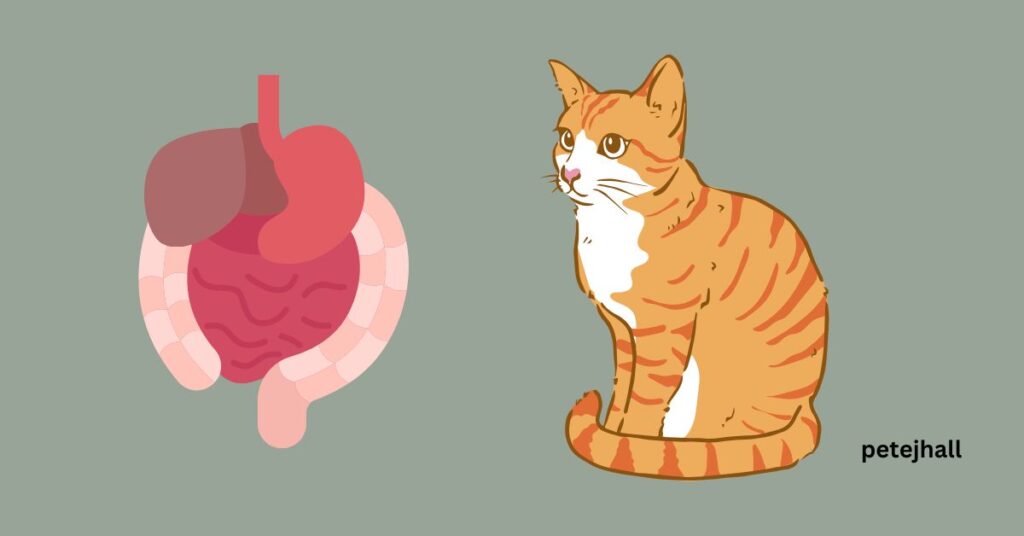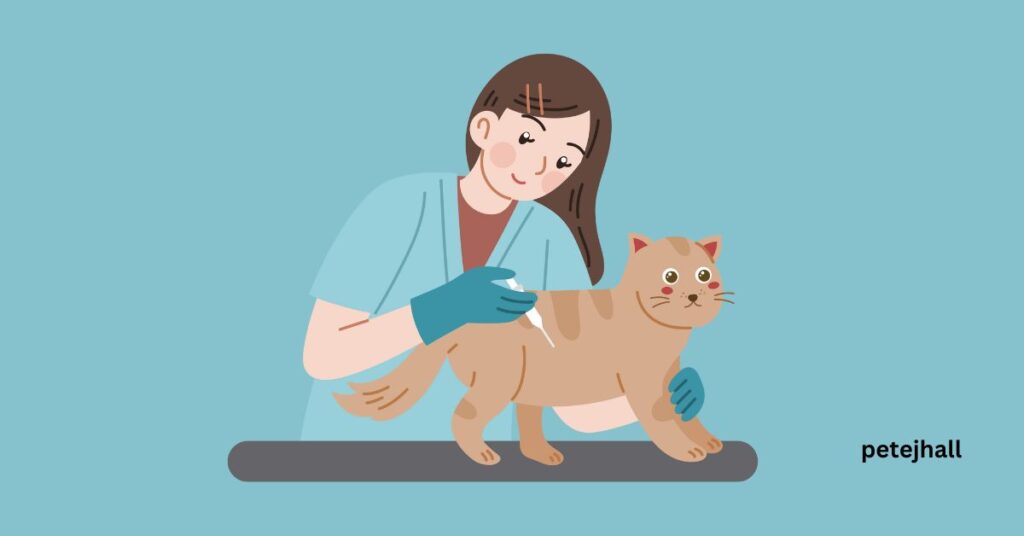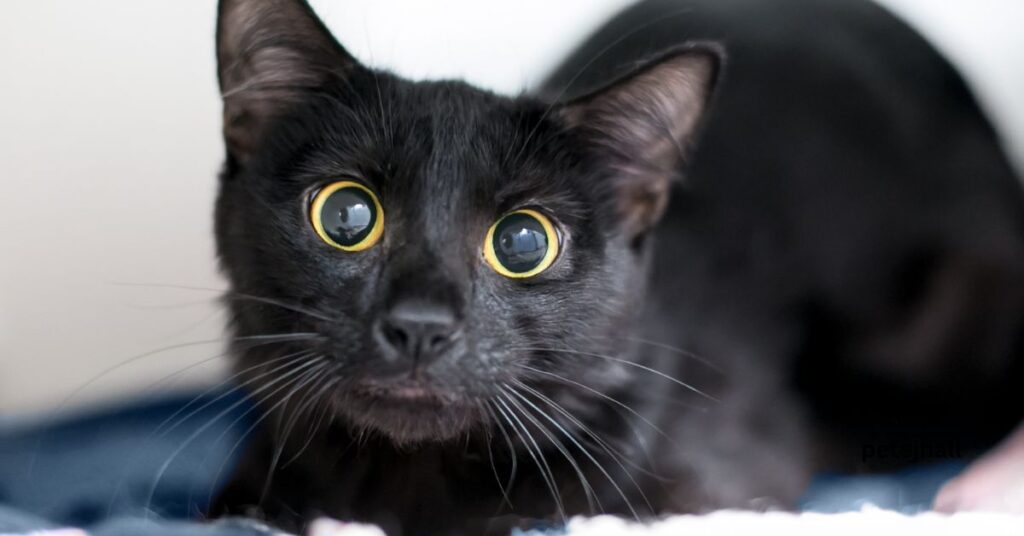As a cat parent, it can be concerning to find your feline companion vomiting, particularly if you primarily feed them dry food. While the occasional episode of vomiting is no cause for worry, too many episodes tell us that there may be an underlying problem, and a vet needs to take a look. Knowing Why does my cat vomit dry food? is essential for their health and well-being. In this post, we will examine the most common causes and first aid solutions for dogs that limp their back legs without pain, so be sure to read all the way to the end.
Rapid Eating Habits
One of the reasons cats vomit dry food is due to their tendency to eat too quickly. All pets will feel the need to eat quickly, but cats have a natural tendency to eat quickly, especially when there is competition. When a full cat eats quickly, it may simultaneously inhale air, causing discomfort and possibly vomiting.
How to fix it: Use a specially designed slow feeder bowl to slow down a fast cat eater, or spread food out on the floor.
Gastrointestinal Sensitivity

If your cat has a sensitive stomach and does not respond well to certain dry foods or ingredients, eating food too rich in nutrients, containing allergenic compounds, or having a low-quality composition might cause cats to puke.
Solution: Dry food might be the issue, but speak to your vet for advice about sensitive stomach formulas or consider purchasing a better dry food with more natural ingredients.
Dehydration
It contains much less moisture than, say, wet food. A dehydrated cat is at risk of vomiting and digestive issues from not drinking enough water.
OP: Make sure your cat always has access to fresh, clean water. Another factor you can look at is wet food, as having a portion of their diet be moist may increase how much water they take in overall.

Hairballs
Cats, due to their constant grooming, have the ability to quickly gather fur. When a cat consumes its own hair during cleaning, it stores the fur in its stomach, a phenomenon known as a hairball. However, dry food alone may not provide the lubrication required for these hairballs to pass effectively through the digestive tract.
The simple solution is to regularly groom your cat, which will likely result in less hair turning into fur balls. Additionally, keep an eye out for hairball control formulas, which aim to regulate and reduce the quantity of fur your cat consumes.
Underlying Health Issues

Chronic vomiting of dry food is generally not a harmless thing and might be indicative of some other health issue, like GI disorders or even metabolic conditions. Pancreatitis, inflammatory bowel disease (IBD), or kidney disease can all alter your cat’s ability to digest food normally.
If your cat frequently vomits dry food, it is recommended that you consult with a veterinarian. They are also able to test you for any possible health problem and give suitable treatment if needed.
Food Change or Overeating
Suddenly altering your cat’s diet can trigger vomiting due to stomach upset. Overfeeding a cat can cause the food to remain low, causing discomfort and eventually vomiting.
Answer: You should transition the cat to new food slowly within a week so that its digestive system acquires the adjusting time. Ensure that they are consuming appropriate portion sizes and do not allow free-feeding, as this may contribute to overeating.
Stress and anxiety

We all make observations about minor stress, eating habits, and the overall health of cats. If you notice your dog vomiting yellow bile and they have recently moved to a new home, gotten another pet, or resumed routine life, then it is most likely because of stress.
Solution: Establish a stress-free cat environment. Create safe spots, keep a regular daily routine, and use calming items such as pheromone diffusers to help relax them.
Why does my cat vomit dry food? Conclusion
While it’s common for cats to vomit occasionally, it’s important to investigate if they consistently throw up their dry food. Determine what causes your cat to vomit so you can fix it and keep them happy. By combating fast eaters, food allergens, dehydration, and hairballs, you help kitty live a more comfortable life while also increasing the chances of your cat having this happy lifestyle.
Always consult your vet if this condition worsens or you notice other symptoms associated with vomiting. Your #1 priority is the overall health and happiness of your kitty, and understanding their digestive health will set you up for success on that journey.
FAQ
Naturally, do cats throw up sometimes?
Occasional vomiting is quite normal for cats, in fact. If your dog is vomiting regularly, it could be a sign of an underlying health issue.
Ask a Vet: Why is My Cat Eating Too Fast and Then Throwing Up?
Competition or instinct may cause cats to eat too quickly. The dog in question swallows air with their food, causing flatulence and vomiting.
How can I slow down my cat’s eating?
To prevent your cat from eating too fast, try a slow feeder bowl or move some food to a flat surface and divide those into small meals during the day.
Is my cat vomiting because they’re allergic to something in their dry food?
While it is true that cats may be sensitive or allergic to certain ingredients in their dry food, and this can cause gastrointestinal upset (vomiting), some people forget about the water.
Signs of Hypercalcemia in Cats Becomes Dehydrated
Particularly with diarrhea, you should be on the lookout for symptoms of dehydration such as dry gums when you gently touch them, as well as a slight lethargic behavior or decreased appetite. If you think your cat may be dehydrated, make sure to provide them with plenty of fresh water and contact your veterinarian.

